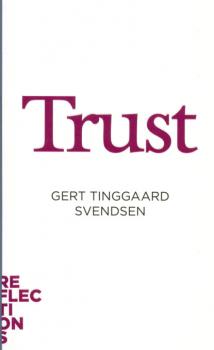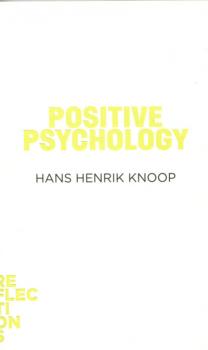Ingram
Все книги издательства IngramThe Borders of Europe
Just like national identities, European identity may be viewed as an imagined community, constituted by different levels of inclusion and exclusion along various border markers as those between included and excluded, between culturally dominating and dominated or between centre and periphery, natives and exiled. This book by researchers within the field of art and architecture, theatrical performance, literature and history, is an important contribution to the ongoing discussion of the borders of Europe, especially where large scale cultural borders towards the East are concerned. The Borders of Europe offers an interdisciplinary perspective on the notion of Europe and its regions, its origins and transformations while highlighting the aesthetics of hegemony and conceptions of centre and periphery in Europe, constructions of national, regional and artistic identity and the aesthetics and poetics of borders in literature and art.
Body, Sport and Society in Norden
This book comprises a number of cultural-historical and ethnographic studies of the history of sport in the Nordic countries. The studies examine the contribution made by sport to the development of Scandinavian nationalism in the nineteenth century, and analyze the ways in which sport became interwoven with the social life of citizens in the various Scandinavian countries in the twentieth century. The main focus of this volume, therefore, is not on the organizational history of sport, nor is it on society vis-a-vis sport – i.e., sport as a reflection of a certain societal constellation. Rather, what is of interest is sport in society, and therefore the book aims to illustrate the ways in which sport has been used and has served to help explain and understand Scandinavian society types.
World Literature, World Culture
In a global age where people, goods and cultural products transcend the boundaries of geography and temporality as never before, it is only natural that literary and cultural studies turn their attention to Goethe's nineteenth-century notion of a Weltliteratur. Offering their own Twenty-First Century perspectives – across generations, nationalities and disciplines – the contributors to this anthology explore the idea of world literatue for what it may add of new connections and itineraries to the study of literature and culture today. Covering a vast historical material from witness accounts of the fall of Constantinople to Hari Kunzru's contemporary representations of multicultural London, these essays, by a diverse group of scholars, examine the pioneers of world literature (Juan Andres Morell, Goethe and Hugo Meltzl), and the roles played by translation, migration and literature institutions in the circulation and reception of both national and cosmopolitan literatures. They illustrate how literary analysis can be enriched by attention to the border-crossing itineraries followed by migrants, writers, publishers, translators and texts; thereby yielding new discoveries about writers and artists such as Catullus, Manuel Vicent, Jean-Luc Godard, Dubravka Ugresic, Derek Walcott, Cabral do Nascimento, Thomas Pynchon, Asger Jorn and Louis Paul Boon.
When Culture Becomes Politics
Taking the problem of European identity as his point of departure Thomas Pedersen's book offers a new theoretical perspective upon culture, identity and nationality. His main argument is that politics are more culturalized than we assume, and that culture is more personalized than we recognize. Nationality is becoming more personalized and hybrid and is acquiring an aesthetic dimension as a side-effect of the democratization of art. Citizens in the Western world and beyond are becoming symbol producers and culture producers, and far from simply taking their cue from custom, contemporary citizens therefore increasingly take an active part in the creation of national and supranational identities. This insight leads the author to develop a new individual understanding of politics summarized in the concept of integrism and to advocate a politics of liberal culturalism and integrist cosmopolitanism as an alternative to both post-modernism and Samuel Huntington's holistic, religious culturalism.
Urban Life and Local Politics in Roman Bithynia
Most studies of Roman local administration focus on the formal structures of power: imperial laws, urban institutions and magistracies. This book explores the interplay of formal power with informal factors such as social prejudice, parochialism and personal rivalries in the cities of northwestern Asia Minor from the first to the fifth centuries AD. Through a detailed analysis of the municipal speeches and career of the philosopher-politician Dion Chrysostomos, we gain new in-depth insight into the petty conflicts and lofty ambitions of an ancient provincial small-town politician and those around him. The author concludes that Roman local politics were rarely concerned with political issues but more often with social status and the desire for recognition within an agonistic society.
Trust
Do you know the author of this book? Maybe not. But you probably trust him anyway. Most Danes do: as many as 78%. Even people who do not know him at all trust him. He is in fact not just anyone; he has solved the riddle of Denmark's success – until now an inexplicable mystery. The answer is simple. It is the Danes' trust in him and everyone else they do not know which is Denmark's most important raw material. It makes the country one of the richest in the world. – his name? Gert Thinggard Svendsen, trust expert at the University of Aarhus, and he says: Control is good, but trust is cheaper.
Positive Psychology
We have evolved to enjoy sleep, sex and sweets – and so we do. But negativity permeates our lives too: we are drawn to murder and violence on the news; we remember the schoolyard bully as if it was yesterday, and we are taught to accept boring education. It is in our genes, but it is also deeply ingrained in our culture. We must pull ourselves together! This is the message from Hans Henrik Knoop, Associate Professor at Aarhus Univesity, President of the European Network for Positive Psychology. If we create the right conditions for growth and self-regulation, we can raise ourselves above primitive desires to achieve far greater well-being.
Sproget
Malet med bogen er at fortAelle om sproget – hvordan det er bygget op, og hvordan det bruges. Om lyd og skrift, ord og udsagn. Om historien bagved, om sproget i samfundet, om det videnskabelige studium af sproget. Sproget er et stykke vAerktoj, det fineste og mest komplicerede, vi har. Alligevel handterer vi det med stor behAendighed, blot fordi vi er vokset op med det. Det er det, der er mirakulost.Bogen er skrevet for den almindelige sproginteresserede lAeser, og eksemplerne er hovedsagelig danske, selv om der undervejs ogsa, til orientering og sammenligning, henvises til andre sprog. UNIVERS vil hvert ar prAesentere nye titler, hvori forende forskere vil prAesentere deres forskningsfelt under en bred overskrift. Bogerne bliver relativt lettilgAengelige og vil forst og fremmest henvende sig til velorienterede personer uden for det enkelte forskningsomrade – eller med en fremtid inden for det.UNIVERS bygger pa en tro pa, at topforskerens faglige overblik og specialviden er den rigtige basis for at skrive om bredere emner og sAette et personligt prAeg pa fremstillingen. Bogerne bliver altsa personlige, men ikke polemiske; de skal kunne lAeses med udbytte om fem eller ti ar, selvom diskussionerne i forskningsmiljoet har flyttet sig.UNIVERS er et forsog pa at genopvAekke eller stimulere en tradition for dannelse, dvs. for bred tvAerfaglig indsigt, der kan danne udgangspunkt for kvalificerede diskussioner om samfundsforhold og udviklingen.









